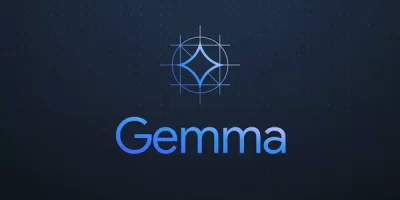In their first letter to shareholders, our founders highlighted Google’s mission to “develop services that significantly improve the lives of as many people as possible.” This vision continues to guide all of us at Google. From Search to YouTube, Gmail to Google Maps—we’ve worked to ensure that our products increase access to information, help people connect with one another, and amplify opportunities around the world. In doing so, Google’s business, products, and technology have long had implications for the advancement of global human rights.
As a founding member of the Global Network Initiative (GNI), we’ve worked closely with civil society, academics, investors and industry peers to protect and advance freedom of expression and privacy globally as we deliver high-quality, relevant and useful content. Yesterday, GNI released its third assessment of Google, conducted by an independent third party, and determined that we are making good-faith efforts to implement the GNI Principles with improvement over time.
The report provides an overview of how the GNI Principles are integrated into our governance structure, due diligence and risk management, and operational practices regarding freedom of expression and privacy. Senior management oversees the implementation of the GNI Principles at Google and provides quarterly updates to the Board of Directors. We’ve implemented an extensive network of Googlers covering product, jurisdiction, and functional areas who are responsible for the day-to-day work of protecting user rights of freedom of expression and privacy. Members of these teams can escalate issues to Google’s senior management, and are supported by a global human rights policy lead.
As we reflect on Google’s assessments and some of the recent developments in our work to protect the free expression and privacy interests of our users, and our responsibilities to the societies in which we operate, we wanted to highlight a few examples of how our engagement with GNI continues to inform our broader approach to human rights.
Transparency
Transparency is core to Google’s commitment to respect human rights. Ten years ago (almost to the day!) Google launched a tool to inform people about government requests for user data or content removal.
Now the Google Transparency Report hub includes transparency reports on requests for user information, government requests to remove content, traffic and disruptions, among many other topics. In April 2018, YouTube took an important first step by releasing a quarterly report on the types and amount of content we remove for violating the YouTube Community Guidelines. Since then, we’ve continued to add more data—disclosing the policy reasons for video and channel removals, the country of upload for video removals, and information about comment removals and appeals—reflecting Google’s continued commitment to iterate on our transparency reporting.
AI principles
In 2018, we published Google’s AI principles, which affirm our commitment to socially beneficial and accountable AI technology, and explicitly state that we won’t design or deploy AI technology that violates international law and human rights. This builds upon our core efforts to incorporate the U.N. Guiding Principles on Business and Human Rights into our responsible decision-making around emerging technologies.
Since announcing the principles, we’ve established and evolved our formal processes to ensure we’re thoughtfully considering and assessing new AI projects, products and deals. Human rights due diligence is part of that process.
Human rights by design
Before creating our Celebrity Recognition tool, Google Cloud asked the human rights experts at Business for Social Responsibility (BSR) to conduct a human rights impact assessment (HRIA). The BSR assessment helped inform and strengthen Google’s “human rights by design” approach—further integrating human rights into product design and development, and strengthened human rights management at Google by embedding more capacity across various Google teams.
Integrating the human rights assessment in the process of product development ensured that we were following our AI Principles and meeting our broader responsibility to consider and mitigate potential human rights risks. This due diligence helped us build a product in a sensitive area and encourage product managers to and think about product challenges in a new way. When we announced the Celebrity Recognition tool in October 2019, we also released a summary of our Human Rights Impact Assessment.
The GNI assessment also provided recommendations for enhancing our implementation of the GNI Principles, which will inform our policies and practices and strengthen our advocacy in 2020. All of this work helps us incorporate business and human rights principles into Google’s long-term strategies and day-to-day decision-making. We’ll continue to build on this approach, enriching lives and strengthening our communities in the future.



